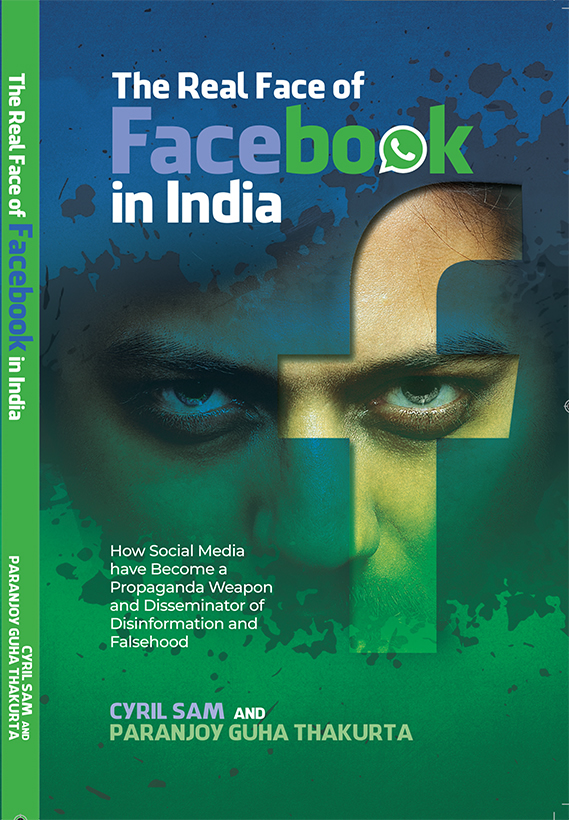The more things change, the more they remain the same. Those who refuse to learn from the mistakes of the past are condemned to repeat them over and over again.
These maxims are especially valid for financial scandals in India. And these are not my words. Similar sentiments have been expressed in a draft report prepared by the Joint Parliamentary Committee inquiring into last year’s stock market scam. Here is a sentence from the draft report:
“It is the considered view of the committee that…the lack of progress in implementing the recommendations of the last Joint Parliamentary Committee set up in 1992 to enquire into the irregularities in securities and banking transactions, emboldened wrong-doers and unscrupulous elements in their attempts to manipulate the system and was compounded by a lack of urgency amongst the authorities in checking them.”
This draft report in two parts – circulated on July 1 and July 5 among the 30 Members of Parliament belonging to different political parties who comprise the JPC set up on April 26, 2001 – has become fairly controversial.
On Thursday (July 25), the Lok Sabha secretariat issued a statement saying the JPC was yet to finalise its report and that the ‘question of breach of privilege is being considered by the JPC.’
The fact of the matter is simple: as soon as thirty copies of a report are circulated among an equal number of politicians, the document ceases to be “confidential” even if it is marked such and the official circulating it states that “members are …requested to treat the draft chapters as highly secret (underlined and in bold type) and strictly ensure their security.”
It is also certain that JPC members belonging to the Opposition would press for many changes in the text of the chapters drafted so far – at least two of them said so to this columnist on condition of anonymity.
The changes that Opposition members would seek to incorporate into the final report of the JPC would, among other things, pertain to the alleged involvement of former finance minister Yashwant Sinha in the July 2001 fiasco concerning the Unit Trust of India.
However, the observations made in the second chapter of the draft report entitled “Overview and Scope of the scam” are unlikely to be significantly altered by JPC members and would, in all probability, appear in the final report in a similar form. Let us have a look at the concluding comments of this chapter.
According to the draft report of the JPC, the scam was “basically the manipulation of the capital markets to benefit market operators, brokers, corporate entities and their promoters and managements” as result of which small investors had to bear the maximum suffering.
“Certain banks including private and cooperative banks, stock exchanges, overseas corporate bodies and financial institutions were willing facilitators in this exercise,” the draft report states, adding that the scam lay not in the fluctuations of stock prices but in large-scale diversion and fraudulent use of public funds by institutions like the UTI.
Institutions like the UTI subscribed to “debt and equity offerings of companies at artificially high prices.” Further, there was “brazen violation of risk norms on the stock exchanges and use of funds coming through overseas corporate bodies to transfer stock holdings and stock market profits out of the country.”
The draft report of the JPC points that these dubious activities went largely unchecked when share values were rising and that regulators started showing “greater concern” only after the stock market collapsed in March 2001.
The report is extremely critical of the absence of accountability in the working of the country’s financial system and the apparent ineffectiveness of various regulatory authorities, be these the Securities and Exchange Board of India or various registrars of co-operative societies.
“The committee came across repeated instances where money obtained from the banks was used for purposes much different from what it was loaned for,” the draft report observes.
It has been stated that a special cell set up by the government after the 1992 scam to investigate the nexus between brokers and industrial houses had become “defunct” without “any tangible findings and remedial action.”
Coming down particularly hard on Sebi, the draft report says: “What is even more worrying to the committee is that the investigations conducted by the capital market regulator showed a lack of professionalism, direction and consistency resulting in this committee having several interim reports which did not arrive at any definite conclusions.”
The third chapter of the draft report of the JPC deals with “implementation” of the recommendations made by the earlier JPC. A more appropriate title for the chapter would have been ‘Lack of Implementation.’
After the 1992 scam, the Central Bureau of Investigation registered 72 criminal cases. Chargesheets have been filed in 47 cases and the courts have disposed only six of these. The rest are either pending trial or cases where departmental action was suggested or “were disposed of otherwise” – that probably means, nothing much really happened.
After the CBI wrote to the finance minister on the tardy progress in this regard, the finance ministry sanctioned two additional posts of judges. However, the Bombay high court could not spare judges for this purpose. The finance minister then wrote to the Chief Justice of India to provide two additional judges where the matter currently stands.
This is what the draft report states: “Lack of urgency on the part of the government has led to a stage where after more than nine years, 66 out of 72 cases of 1992 have yet to be adjudicated. This clearly sends out a signal that future wrong-doers can evade the consequences of their wrongs and can also enjoy their ill-gotten gains.”
This JPC has urged the government to set up an “adequate” number of courts to “ensure final disposal of cases within two years.” In its draft report, the committee has also indicted the Reserve Bank of India, the Department of Company Affairs, and the Institute of Chartered Accountants of India for displaying “complete lack of urgency” in initiating action against audit firms identified by the earlier JPC.
The draft report points out that Sebi-nominated directors on the boards of stock exchanges hardly attended meetings. For example, at the Calcutta Stock Exchange where a major default occurred in March 2001, “one director did not attend even a single meeting out of 26; another attended 3 out of 13 and yet another 25 out of 62 (board meetings).”
Is anybody listening? Or will this JPC’s recommendations gather cobwebs like the suggestions made its previous avatar nine years ago?
History, we have been told, repeats itself, first as tragedy and then as farce. We are indeed waiting for another financial fraud to take place to realise the “farce” that our parliamentary committees are in danger of becoming.


